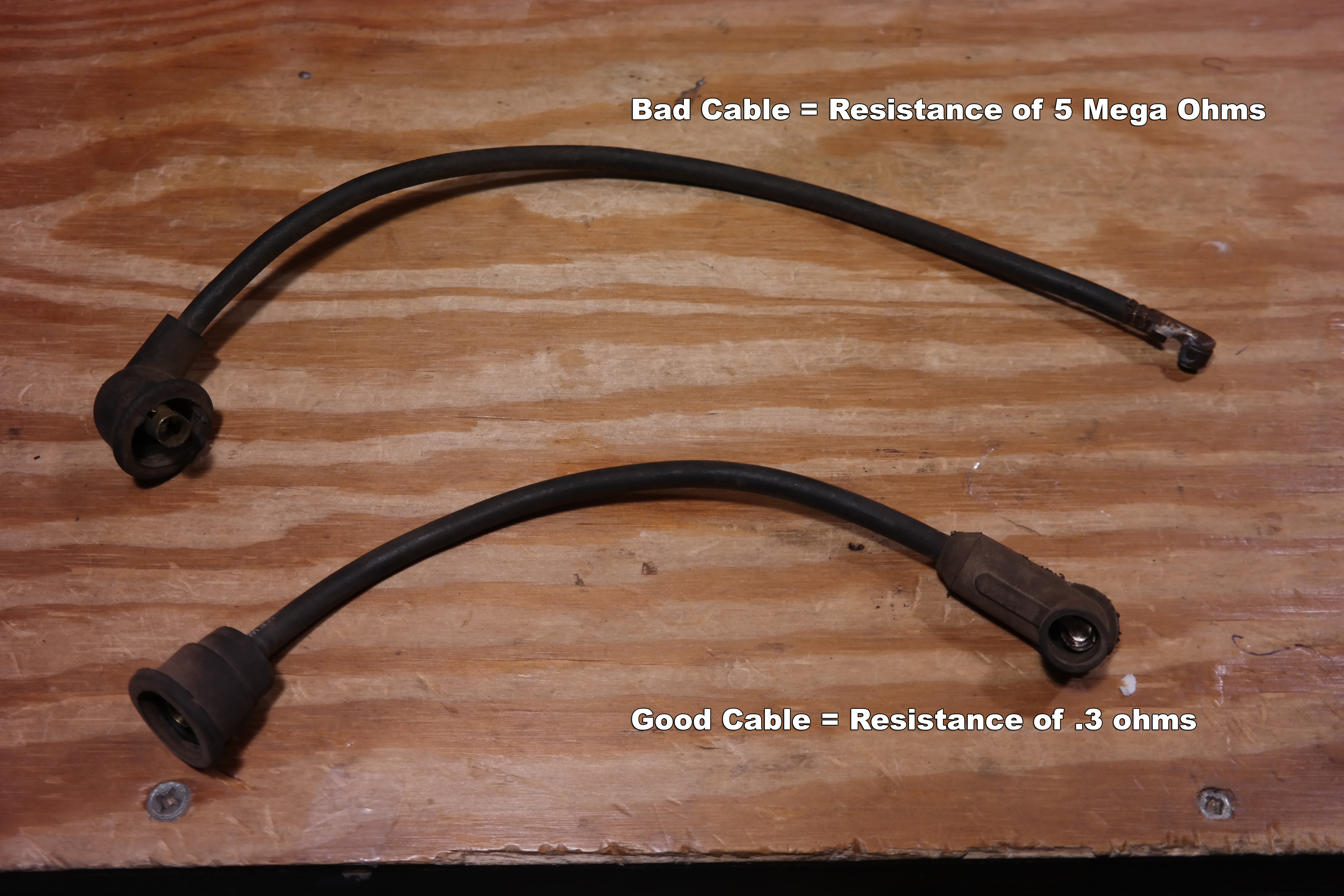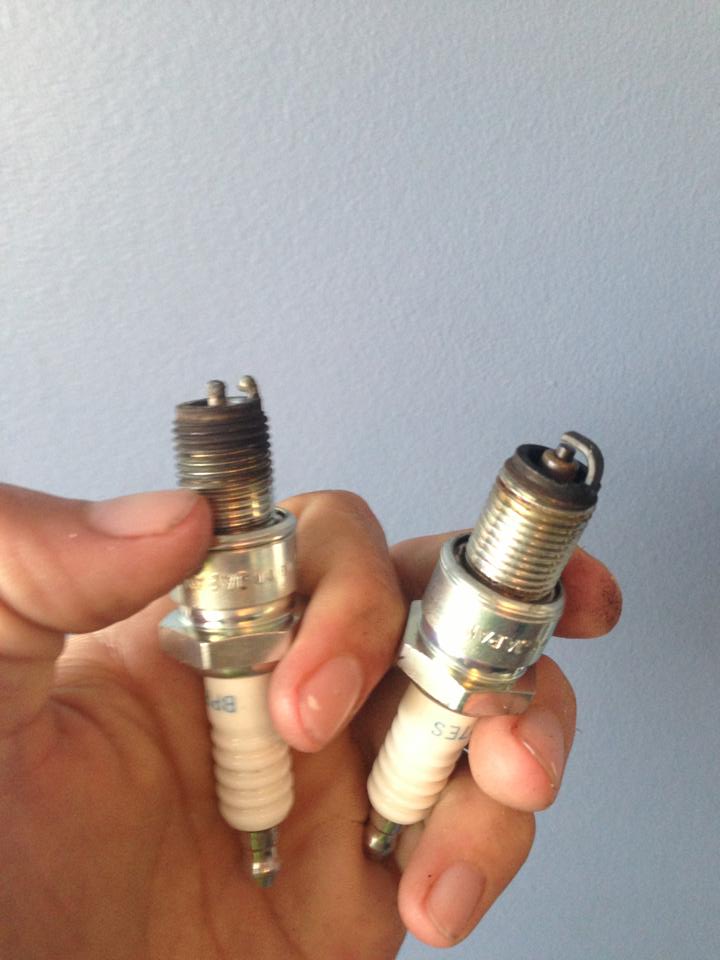Are you frustrated with constantly replacing your spark plugs? You’re not alone.
Many drivers face the annoying issue of spark plugs burning out faster than they should. It’s not just a minor inconvenience; it can affect your vehicle’s performance and fuel efficiency. But why does this happen? Understanding the reasons behind frequent spark plug burnout can save you time, money, and headaches.
Imagine driving without the constant worry of having to replace your spark plugs. Intrigued? Let’s dive into the common causes and simple solutions that can help you keep your engine running smoothly. Stick around, because what you learn today could transform your driving experience tomorrow.
Common Symptoms Of Burnt Spark Plugs
Burnt spark plugs often cause engine misfires and reduced fuel efficiency. Black soot or white blistering on plugs indicates overheating. Frequent burnout might be due to incorrect spark plug gaps or poor engine tuning.
When your car doesn’t run as smoothly as it should, burnt spark plugs might be the culprit. Spotting the symptoms early can save you from costly repairs and headaches. But how do you know if spark plugs are the issue? Here are some common symptoms you might notice.Engine Misfires
A misfiring engine can be alarming. It often feels like your car is hesitating or stuttering as you drive. I remember driving on the highway when my car suddenly jerked. It was a burnt spark plug causing the misfire. Misfires can lead to engine damage if ignored, so it’s crucial to address them quickly.Reduced Fuel Efficiency
Notice your trips to the gas station becoming more frequent? Burnt spark plugs can decrease fuel efficiency. Your engine works harder to maintain performance, guzzling more fuel. This not only hits your wallet but also affects the environment. Keeping an eye on your fuel consumption can help catch this symptom early.Difficulty Starting Engine
Struggling to start your car in the morning? This could be another sign of burnt spark plugs. The engine cranks but doesn’t start easily. It’s frustrating and can ruin your day before it even begins. Ensuring your spark plugs are in good condition can save you from this common annoyance. Have you noticed any of these symptoms in your vehicle? Addressing them promptly can extend your car’s lifespan and improve your driving experience. Regular maintenance and inspection of spark plugs can prevent these issues from becoming more serious. Have your mechanic check them out the next time your car is in the shop.
Credit: www.reddit.com
Causes Of Spark Plug Burnout
Spark plugs play a crucial role in your vehicle’s engine. They ignite the air-fuel mixture, powering your car. But sometimes, spark plugs burn out too fast. Understanding the causes can help you prevent this.
Incorrect Spark Plug Type
Using the wrong spark plug type can cause burnout. Each engine needs a specific spark plug. The wrong type may not handle your engine’s heat. This leads to faster wear and tear. Always check your vehicle manual for the right type.
Improper Gap Setting
The gap setting in spark plugs is vital for performance. Too wide or narrow gaps can cause issues. A wide gap needs more energy to fire. This strains the ignition system. A narrow gap might cause weak ignition. Both can lead to burnout.
Overheating Issues
Overheating is a common cause of spark plug burnout. High engine temperatures can damage spark plugs. Overheating can result from engine problems. Lack of coolant or a faulty thermostat can cause high temperatures. Ensure your engine runs cool to protect spark plugs.
Impact Of Fuel Quality
Spark plugs are vital for your engine’s performance. Their longevity can be affected by fuel quality. Inferior fuel often leads to frequent spark plug replacements. Understanding how fuel quality impacts spark plugs can save time and money.
Low-grade Fuel Effects
Low-grade fuel can harm engine components. It often lacks the necessary octane levels. This deficiency causes incomplete combustion. Residual deposits build up on spark plugs. These deposits lead to misfires and reduced efficiency. Regular use of low-grade fuel shortens the lifespan of spark plugs.
Additives And Contaminants
Fuel additives influence spark plug health. Some additives enhance fuel performance. Others can leave harmful residues. Contaminants in fuel can damage spark plugs too. Water and dirt particles create spark plug fouling. This fouling results in poor ignition and engine issues. High-quality fuel minimizes these risks.
Electrical System Problems
Electrical system problems can cause spark plugs to burn out prematurely. This issue often stems from components that fail or degrade over time. Identifying the root cause helps prevent recurring damage and ensures optimal engine performance.
Faulty Ignition Coil
The ignition coil supplies high voltage to spark plugs. If the coil fails, it can lead to weak or inconsistent sparks. This can cause incomplete combustion and force the spark plug to work harder. Over time, this leads to increased wear and burnouts. Regular inspections help spot faulty coils before they damage spark plugs.
Worn Out Wiring
Old or damaged wiring can disrupt the electrical flow to spark plugs. Poor connections result in insufficient power, causing spark plugs to misfire or burn out quickly. Check wiring for signs of wear, corrosion, or damage. Replacing worn wiring ensures a steady electrical supply and prolongs spark plug life.
Maintenance Mistakes
Maintenance is key to keeping your vehicle running smoothly. Ignoring certain practices can lead to frequent spark plug burnouts. Understanding common maintenance mistakes can help prevent this issue. Let’s explore some critical errors drivers make.
Neglecting Regular Checks
Regular checks keep your engine in top condition. Many drivers forget to inspect their spark plugs. This oversight can lead to unnoticed problems. A small issue can grow into a significant problem. Regular checks can catch these early. This saves time and money in the long run.
Using Old Spark Plugs
Old spark plugs can cause more harm than good. They may not ignite fuel efficiently. This inefficiency can lead to increased engine stress. Replacing old plugs with new ones is crucial. It ensures optimal engine performance. Always check your vehicle’s manual for the right replacement schedule.

Credit: isavetractors.com
Environmental Factors
Have you ever wondered why your spark plugs keep burning out prematurely? While many factors could be at play, environmental factors often get overlooked. These factors can significantly impact the lifespan of your spark plugs, leading to frequent replacements and frustrating car troubles. Understanding these factors can help you take better care of your vehicle and prevent ongoing issues.
Extreme Temperature Effects
Temperature swings can be brutal on spark plugs. In regions where temperatures soar, spark plugs can overheat, causing them to wear out faster. Conversely, extremely cold weather can make starting your car a challenge, putting undue strain on the plugs.
Imagine you’re in a desert climate; the relentless heat can affect the engine’s performance, causing spark plugs to burn out. On the flip side, if you live in a colder region, you might notice plugs failing more frequently during winter. Have you experienced these shifts in temperature and noticed a difference in your car’s performance?
Driving Conditions
Your driving habits and conditions can also play a pivotal role. Frequent stop-and-go traffic, often seen in urban settings, can be harsh on spark plugs. This type of driving demands constant engine adjustments, which can accelerate plug wear.
Consider those long drives on highways versus short city commutes; each impacts your spark plugs differently. Highway driving typically offers a steady pace, which is kinder to your plugs. Have you ever thought about how your daily driving might be affecting your spark plugs?
Being proactive about understanding these environmental factors can save you time and money. Are you ready to make changes to extend the life of your spark plugs?
Preventive Measures
Spark plugs burn out due to overheating or poor engine maintenance. Regularly checking and cleaning them can prevent damage. Ensure proper engine tuning and use high-quality fuel for optimal performance.
When your spark plugs keep burning out, it can be both frustrating and costly. Fortunately, there are preventive measures that can help you avoid this issue and keep your vehicle running smoothly. By taking some simple steps, you can prolong the life of your spark plugs and ensure your engine operates efficiently.Choosing The Right Spark Plugs
Selecting the appropriate spark plugs for your vehicle is crucial. Your car’s manual will often provide recommendations for the best type of spark plug, taking into account your engine’s specific requirements. For instance, if you drive a high-performance vehicle, you might need spark plugs designed to withstand higher temperatures. Material matters too. Spark plugs made from platinum or iridium typically last longer than their copper counterparts. A friend of mine once switched from copper to iridium spark plugs in his old sedan and noticed a significant improvement in performance. Have you checked if you’re using the right material for your needs?Regular Engine Tune-ups
Regular tune-ups are essential for maintaining your engine’s health. During a tune-up, mechanics inspect various components, including spark plugs, to ensure everything is in top shape. A neglected engine can lead to poor combustion, which increases the likelihood of spark plug burnout. I once skipped a scheduled tune-up, thinking I could save some money, but ended up with a hefty repair bill after my spark plugs failed prematurely. Do you have a routine for engine check-ups? Keep an eye on your vehicle’s performance. Is it misfiring or idling roughly? These can be signs that your spark plugs are in trouble. Regular maintenance can catch these issues before they become serious, saving you time and money in the long run. Preventive measures are not just about saving money; they are about peace of mind. Knowing your vehicle is in good condition allows you to focus on the journey ahead. So, are you taking the steps necessary to protect your spark plugs and engine?
Credit: www.gmride.com.my
Conclusion
Understanding why spark plugs burn out is crucial. It saves time and money. Regular maintenance helps prevent frequent issues. Check engine performance often. Replace old or damaged parts promptly. Use the correct spark plug type for your vehicle. Incorrect plugs cause rapid wear.
Ensure proper installation. Tighten them well but not too tight. Monitor engine temperature. Overheating can damage plugs quickly. Good fuel quality is essential. Poor fuel can lead to quicker burnout. Maintain your vehicle for better performance. Protect your investment. Enjoy a smoother ride and longer-lasting spark plugs.
Your car will thank you.
